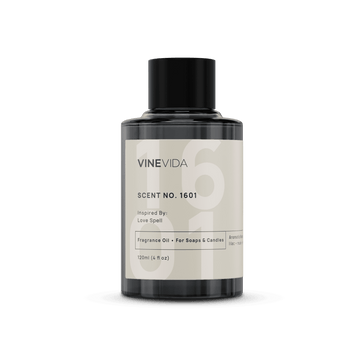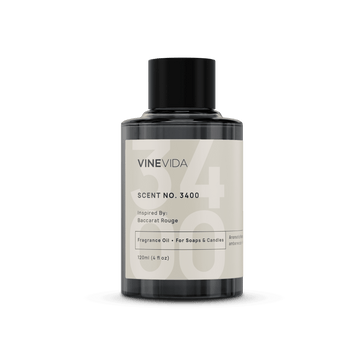Scientific Name: Cymbopogon Winterianus
Origin: Indonesia
Plant Part: Grass
Scent: Pungent, Lemony, and Slightly Peppery
Color: Light to Dark Yellow
Consistency: Thin
Perfumery Note: Top - Middle
Initial Aroma Strength: Medium
Extraction Method: Steam Distilled
Java Citronella Essential Oil: Benefits, Uses, and Blends
Plants are made up of many different entities, known as chemotypes. There are two main types of Citronella Grass: Java and Ceylon. Java Citronella Essential Oil, or Cymbopogon Winterianus, is grown in many hot-weather climates around the world, though 40% comes out of China and Indonesia. The main components in Java Citronella are Citronellal, Geraniol, Geranyl Acetate, Citronellol, and Limonene. Each of these properties offers Citronella Essential Oil benefits.
How We Produce Java Citronella Essential Oil
When it comes to Java Citronella Essential Oil, the age of the plant has an impact on how much oil it contains. Mature grass contains more oil than younger grass, and fresh grass contains more oil than dry. The grass then undergoes steam distillation, with the result being what we all know of as citronella oil. If you come across the plant naturally it will give off a lemony scent as the oil evaporates out from its leaves. The name Citronella originally comes from the Old French word “Citronelle”, which refers to herbs and plants that give off a citrus scent.
Component Breakdown
Let’s talk a little bit more about the potential benefits of Java citronella essential oil. We know Citronella Essential Oil insect repellent can be a natural, effective solution to commercial bug spray, but what exactly is Citronella? Let’s take a look at the breakdown of Citronella’s constituents and their properties:
-
- Limonene: Limonene is a chemical component found in the peel of citrus fruits and certain other essential oils. Due to its citrusy scent, limonene is a common additive to cosmetics and fragrances. You can even find it on the US Environmental Protection website as a botanical insecticide. Research also indicates limonene may be effective in treating cancer, as it shows potential chemopreventive activity.
- Geraniol: Geraniol is prevalent in both Rose and Citronella Oil. It is a product of the honey bee, which uses it to mark the flowers that bear nectar. Geraniol is also a common insect-repelling agent, but recently other uses have been considered. Geraniol shows promise in terms of being a carrier agent, helping topical treatments penetrate the skin.
- Citronellol: As the name indicates, Citronellol is natural to Citronella though you can also find it in Rose Oil, and Geraniums. Citronellol shows positive indications of being both an anti-inflammatory agent and an analgesic.
- Citronellal: Citronellal is largely responsible for this plant’s lemony aroma. Java Citronella Essential Oil is higher in Citronellal than Ceylon, which is why its fragrance is stronger. It seems the more Citronellal is present the more effective an oil’s use as a repellent. This component also appears to be anti-fungal, though current research is somewhat limited.
- Geranyl Acetate: Geranyl acetate’s aroma smells of Lavender, making it a key ingredient in many fragrances. It is a natural component that you will find in many essential oils.
Citronella Essential Oil For Wholesale Use
In 2020 the demand for essential oils was almost 247 kilotons, globally. Forecasts indicate the market will continue to grow, compounding at a rate of approximately 7.5% each year, from now until 2027. Citronella is a particular favorite, due to its insect-repelling properties.
Aromatherapy
Of the two Citronella Oils, Java Citronella is more commonly used in Aromatherapy. This is because it contains a higher concentration of the component Citronellal, which is what gives this oil its lemon fragrance. However, you must be careful in how you use Java Citronella Essential Oil because it’s slightly more toxic than its counterpart.
When using Java Citronella Essential Oil in conjunction with Aromatherapy, care must be taken. Studies show inhalation of Citronella can cause lung issues, particularly with pets and those suffering from respiratory ailments. If you choose to use this oil for Aromatherapy you should use a passive method of diffusion. If you still wish to reap the benefits of Citronella Essential Oil, here are a few of the most popular passive methods:
-
- Fan Diffusers
- Clay, Terracotta, or Sandstone Diffusers
- Jewelry
- Candle Diffusers
- USB Diffusers
Aromatherapy is a large part of holistic healing, though there is a limit to the amount of science-backed research. However, a small study did show promising results on the effect of Citronella on stress management.
Massage Therapy
The global spa industry was worth around USD $93.6 billion in 2017. However, researchers anticipate market share growing to approximately USD $127.6 billion by the end of 2022. This increase in growth indicates how many consumers are beginning to put a major focus on health and wellness.
Essential oils are a safe, natural way to add fragrance to massage oils, rather than using synthetics. Like any other essential oil, you should never apply Java Citronella Essential Oil directly to the skin. You need to dilute it with a carrier oil first, such as one of the options we offer here at VINEVIDA. This is because essential oils are very potent, and can irritate. Anytime you decide to apply something topically it is best practice to apply it to a test patch, then wait for 24 hours. If all is well, continue with the use. If using Citronella topically, wash off after use with warm soap and water.
Insect Repellent
Java Citronella Essential Oil works to mask the human scent from mosquitoes rather than repelling them. This makes them a good, natural alternative to other insect sprays, however, they tend to wear off much faster. This means Citronella sprays need to be frequently reapplied to be of any use. Java has a stronger scent than Ceylon Citronella Essential Oil, which means it is likely more effective.
Fragrance
Due to its strong aroma, Java Citronella Essential Oil is a common ingredient in many fragrances and cosmetics. Similar to its counterpart, it contains components thought to act as antibacterial and antifungal agents. This makes it a prime contender as an additive for soaps and lotions.
Soap Making

There is a reason why Citronella is commonly found in soaps and that is because of all the Citronella Essential Oil benefits! Not only does it smell fragrant and fresh, but it may also offer antiparasitic, antibacterial, and anti-inflammatory effects.
If you wish to add Citronella Oil to your favorite soap recipe, start with a small amount. It can sometimes irritate the skin, particularly in people who find they have prior sensitivities.
Suitable Blending Oils
Citronella blends well with other citrusy scents, such as Lemon and Lime. Other great options include Lemongrass, Peppermint, Tea Tree, and Eucalyptus.
Is Citronella Essential Oil Safe For Pets?
No. Searching online for information about essential oils and pets will give you conflicting information. However, citronella contains geraniol. Geraniol is toxic to pets, so it is best to take proper precautions and not risk your four-legged friend’s health. If you wish to burn citronella for insect repelling purposes, make sure you are doing it outside. Don’t allow your dog to lick or ingest citronella, or come in direct contact with it.
Flash Point
95° C
Conclusion
As you can see, when it comes to Citronella Essential Oil, both Ceylon and Java have their unique benefits. You may find one suits your needs better than the other depending on what you plan to use it for.
You may also like
Recently viewed

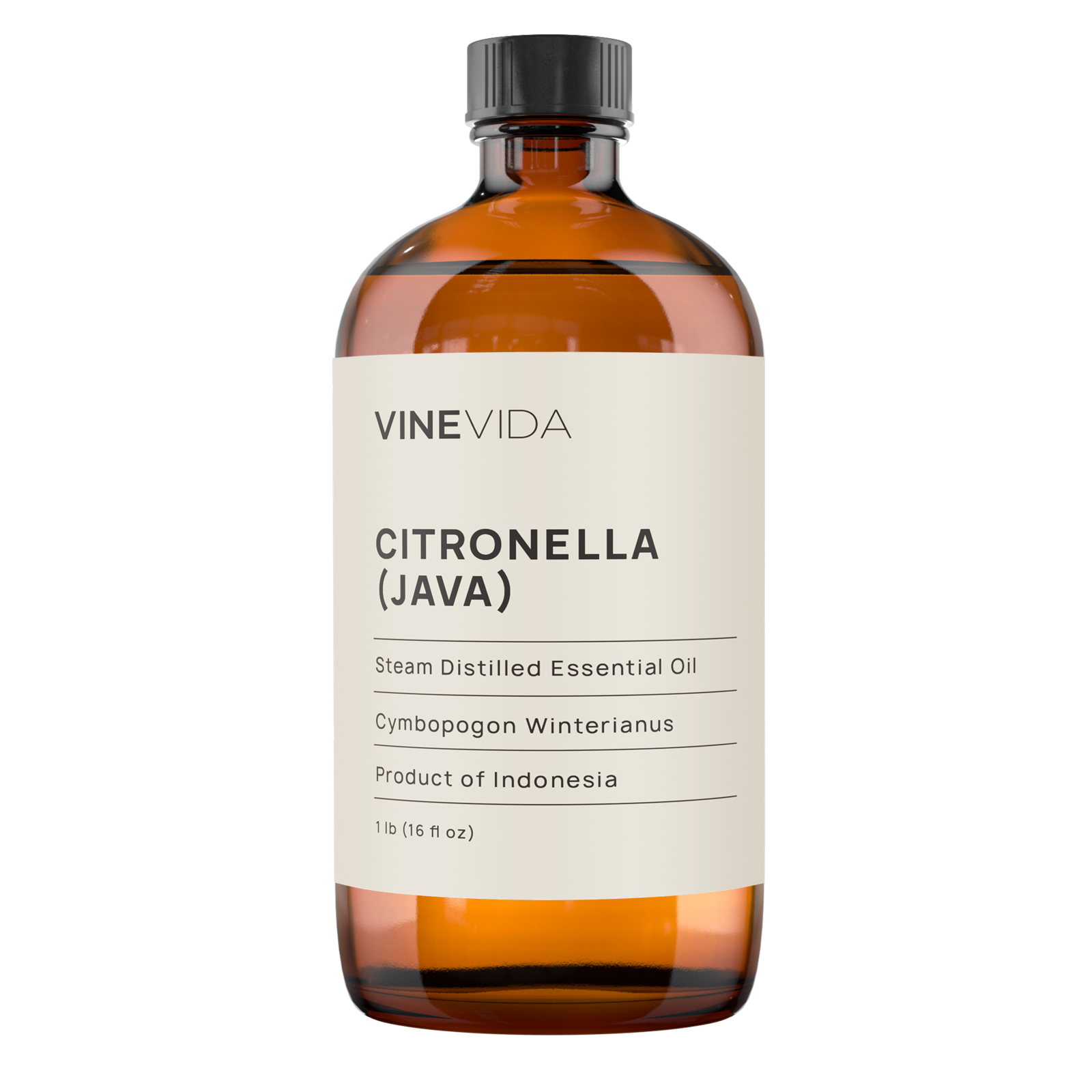
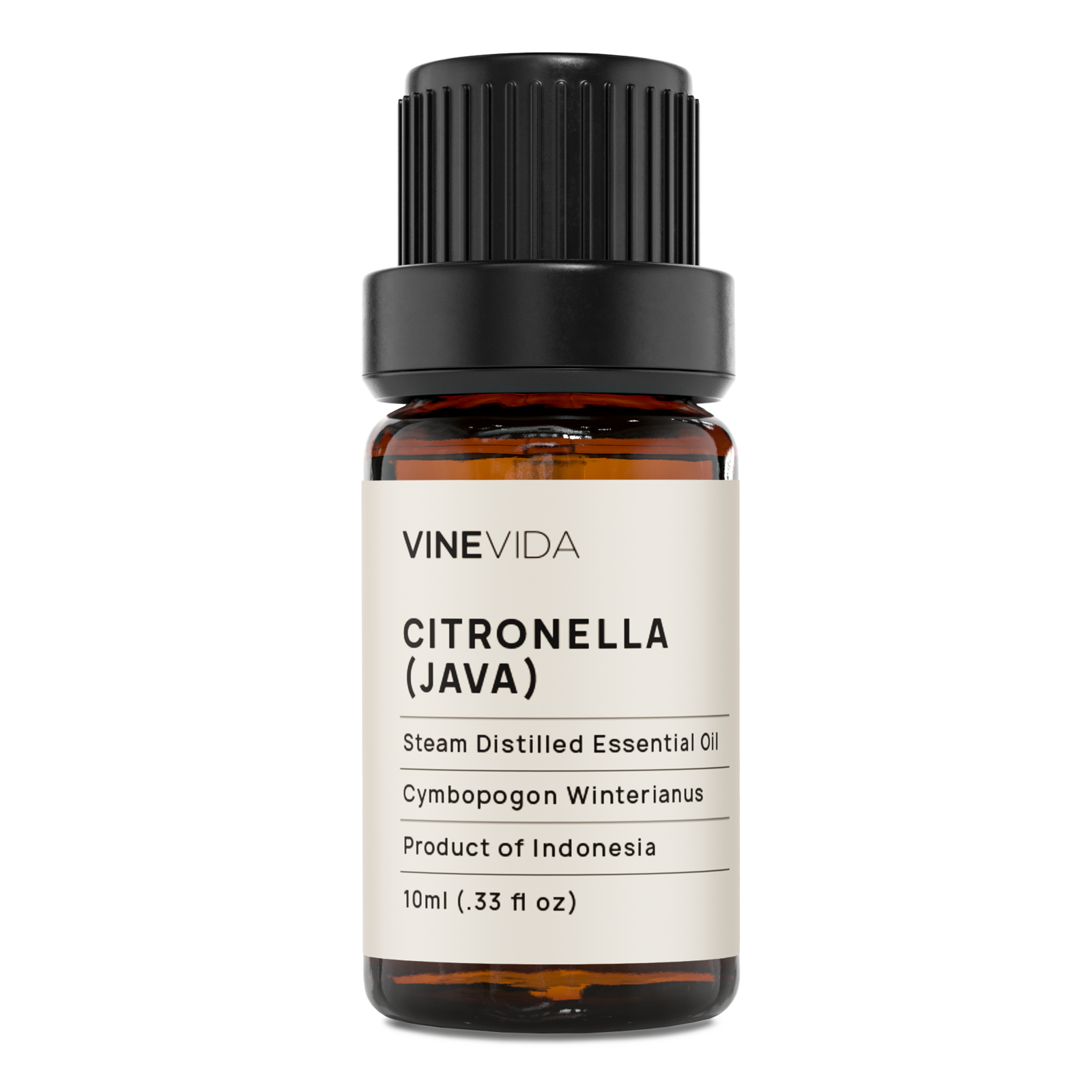
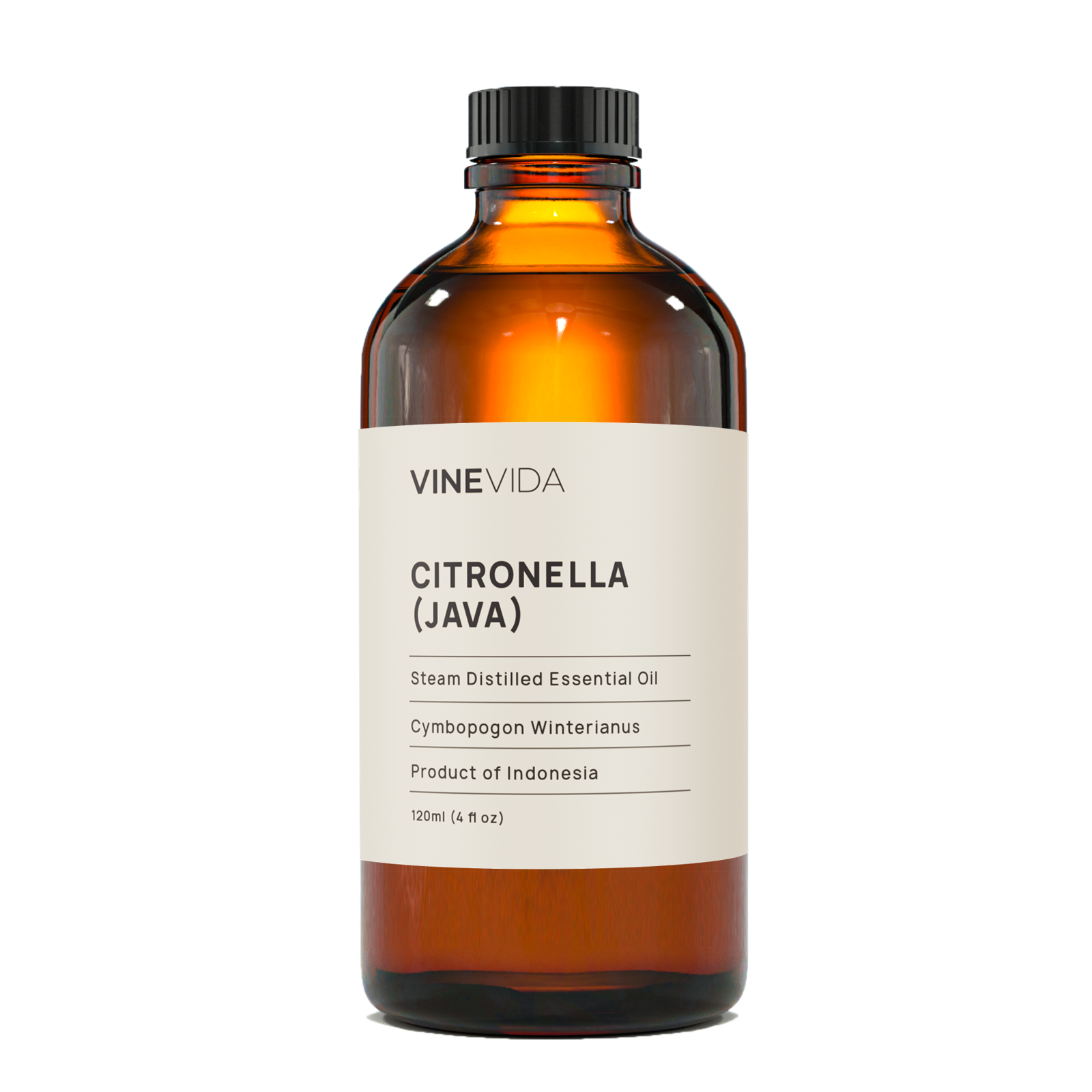
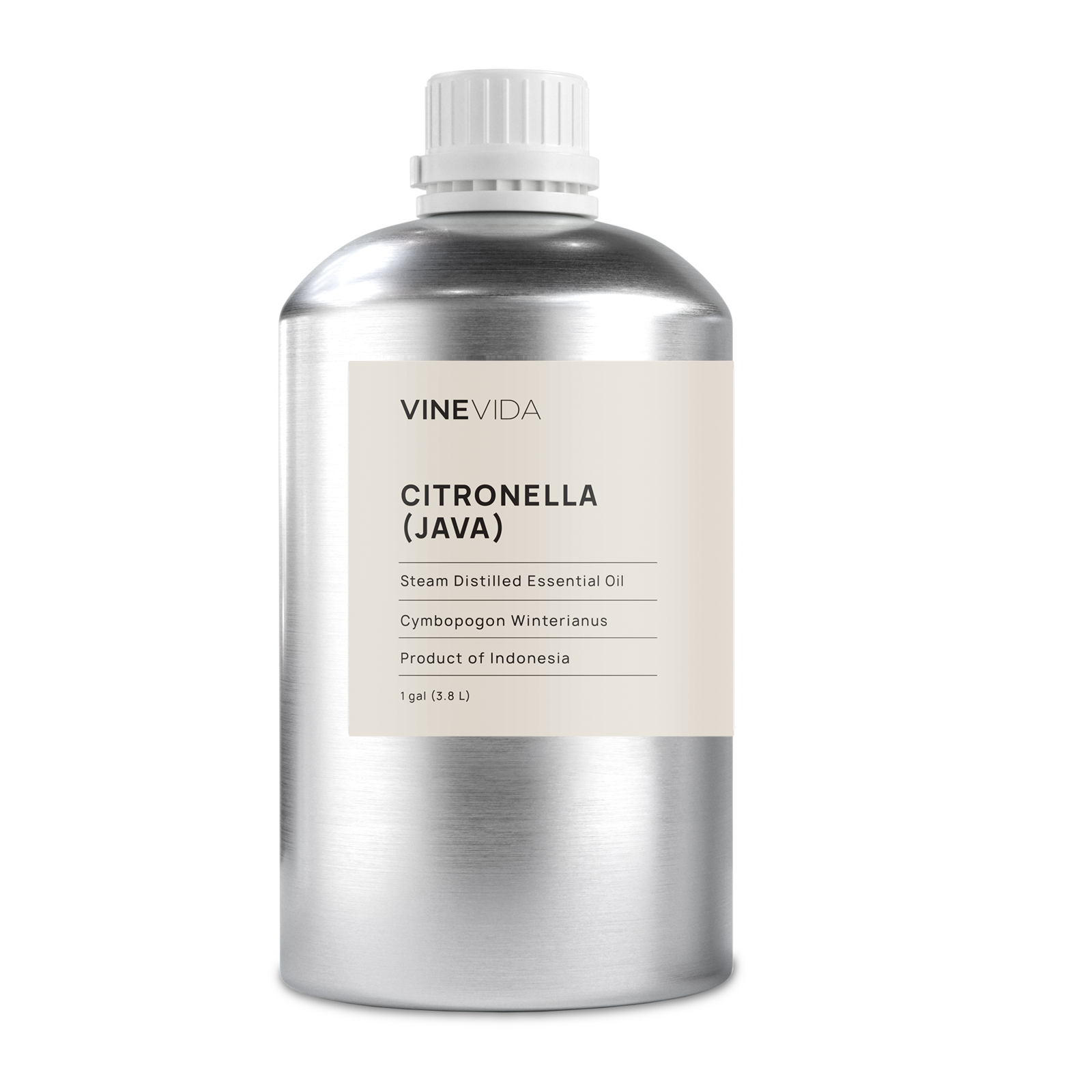
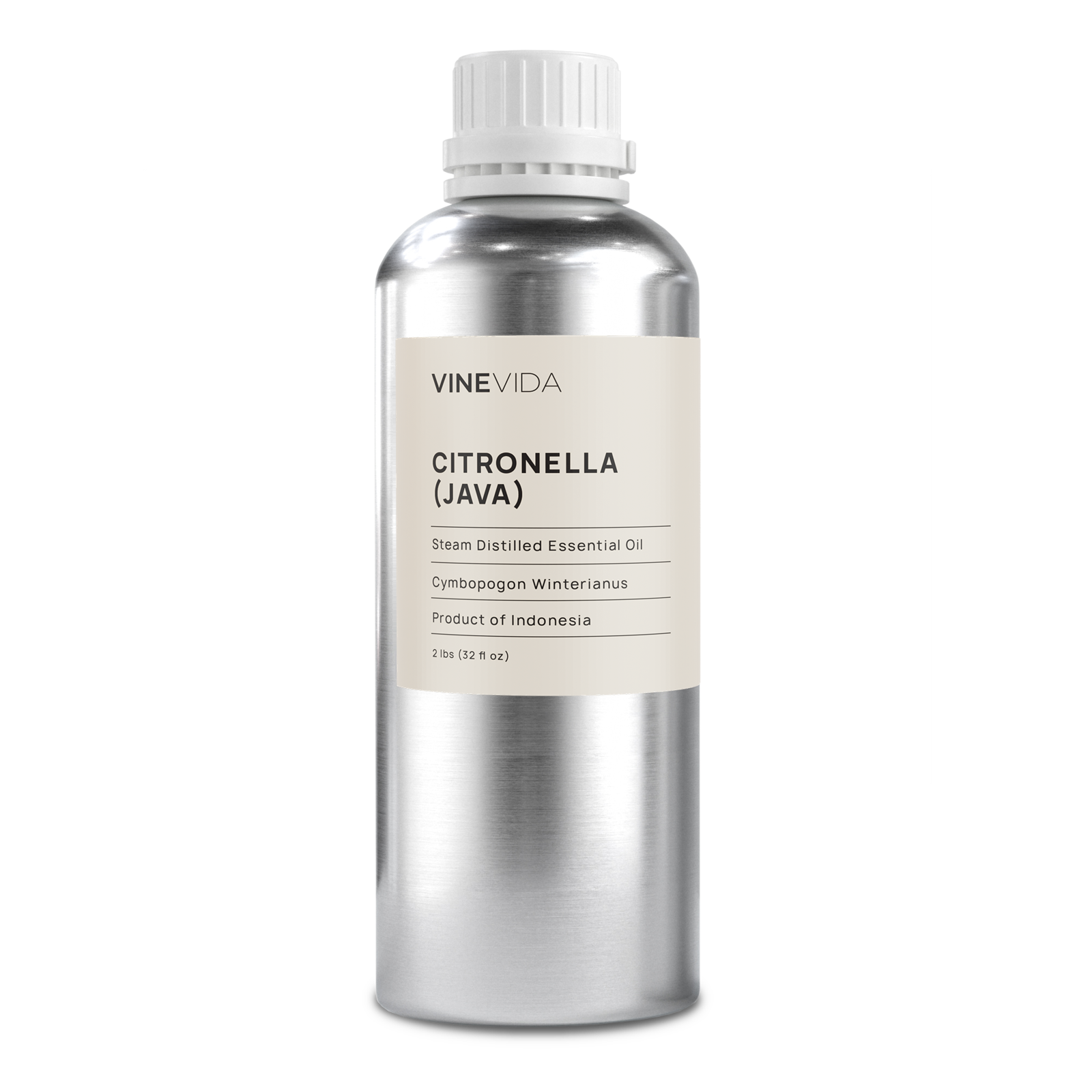









 IFRA Statement
IFRA Statement

















